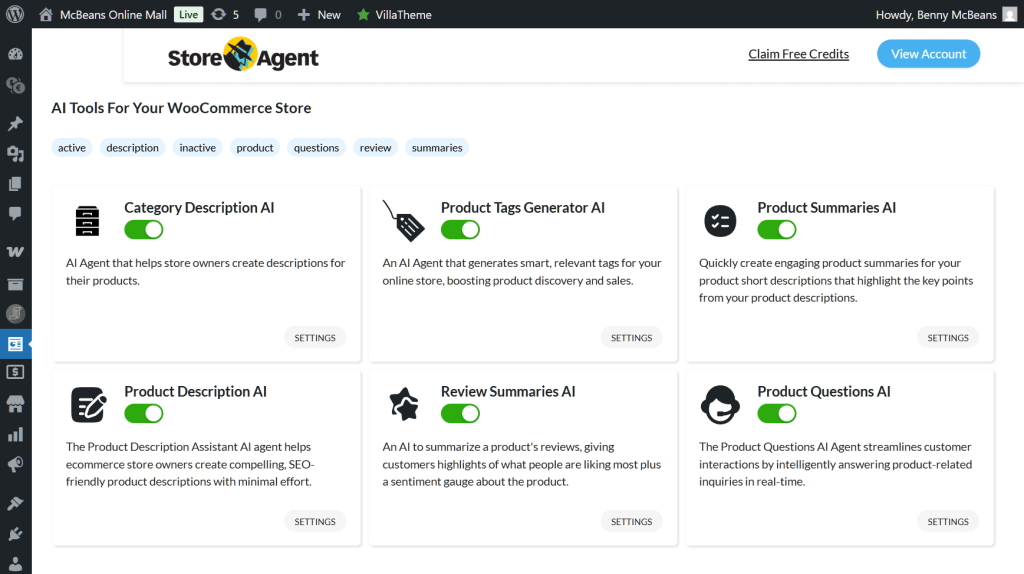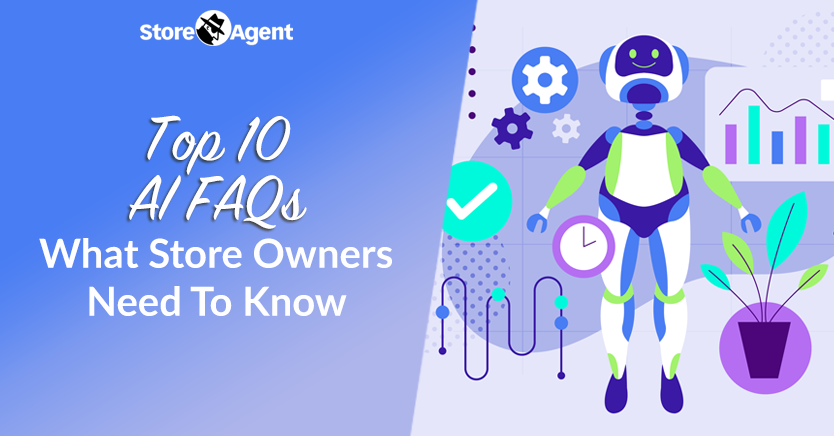
Artificial intelligence isn’t just for tech giants anymore. It now plays a big role in how many online stores run and grow. That’s why we’ve put together this AI FAQs guide: to help WooCommerce store owners understand what AI does, how it works, and where it fits in their business.
Let’s begin!
- Why Your WooCommerce Store Will Benefit From AI
- Top 10 AI FAQs For WooCommerce Store Owners
- 1. What is AI, really?
- 2. Is AI the same as machine learning or deep learning?
- 3. Can AI actually help my store?
- 4. What are the risks of using AI?
- 5. Do I need special tools or skills to use AI?
- 6. Is it safe to use AI with customer data?
- 7. How much does AI cost?
- 8. How do I know if a tool I'm using has AI in it?
- 9. Will AI replace people in my business?
- 10. What’s the future of AI in ecommerce?
- Conclusion
Why Your WooCommerce Store Will Benefit From AI
AI isn’t just for big brands with huge budgets. Even small WooCommerce stores can use this technology to save time and make smarter choices.
Here are some key advantages of using AI:
- Saves time and effort thanks to automation
- Handles repetitive tasks so you can focus on growth
- Improves decision-making with data insights
- Reduces errors that come from manual work
- Responds quickly to customer needs
- Helps spot trends and patterns in your store
- Works around the clock without needing breaks
- Supports better planning for inventory and sales
- Adapts and learns from new information over time
And here are some specific ways AI can help your WooCommerce store:
- Writes product descriptions based on the features you input
- Suggests what items to restock based on recent trends
- Translates listings into other languages for global reach
- Summarizes long customer reviews into short takeaways
- Suggests titles based on your product type and audience
- Spots patterns in sales, so you know what’s working and what’s not
- Answers common customer questions about your products
- Personalizes shopping by showing what each customer is likely to buy
- Recommends tags to help shoppers find items faster
- Helps build FAQ sections from past support conversations
- Writes category descriptions to help with SEO
In short, AI is like having an assistant who works fast, never sleeps, and never takes a day off.
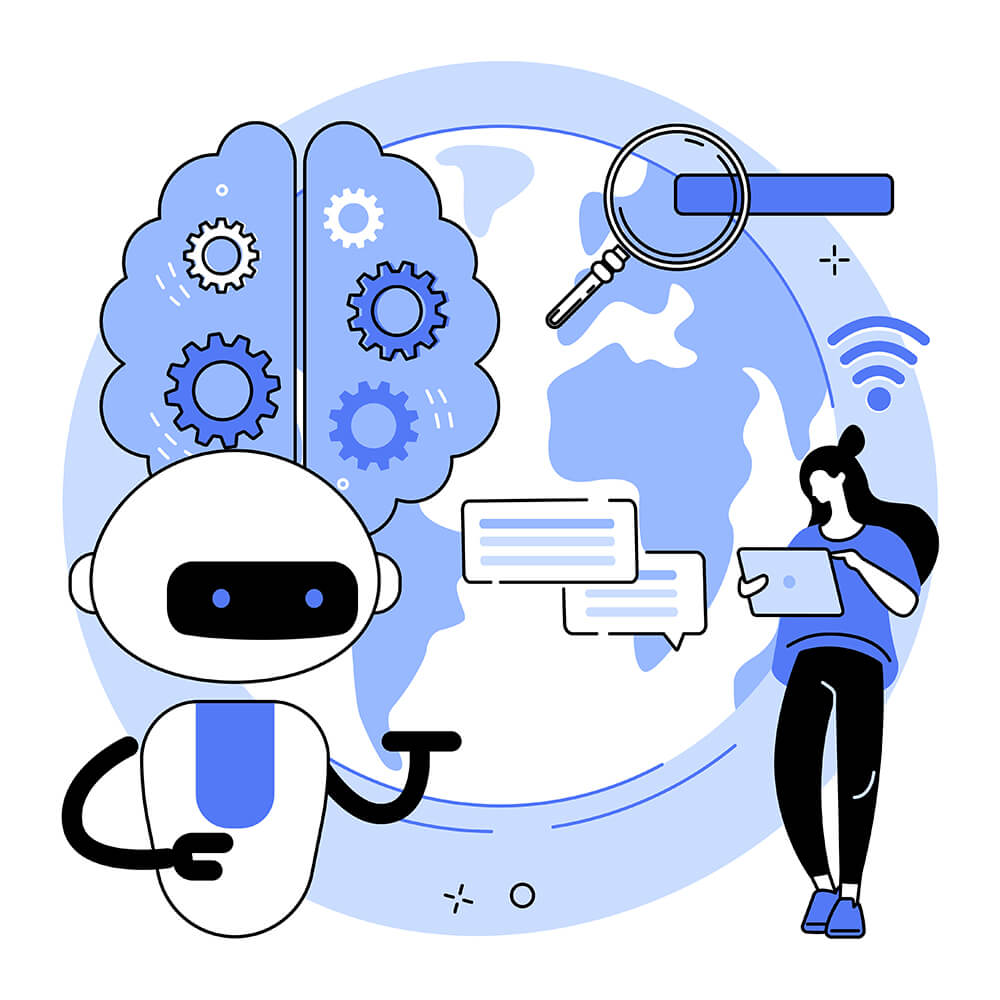
Top 10 AI FAQs For WooCommerce Store Owners
Now, let’s answer the top 10 most frequently asked questions about artificial intelligence!
1. What is AI, really?
AI FAQs often start with the basics, and for good reason. To understand what AI can do, we need to know what it is.
Artificial intelligence, or AI, refers to computer programs that can perform tasks that usually require human thinking. These tasks might include making decisions, learning from data, solving problems, recognizing patterns, or understanding language.
But AI isn’t some magic brain in a box. It’s a set of tools that follow math and rules to figure things out. It doesn’t truly “think” like people do, but it can get pretty close when focused on a specific job.
In ecommerce, AI already plays a part in daily tasks. It helps stores answer customer questions through chatbots and shows shoppers products they might like based on past behavior.
For store owners, AI is more like a helpful teammate than a replacement. It works quietly in the background, sorting, suggesting, and making small decisions so you don’t have to do everything yourself.
2. Is AI the same as machine learning or deep learning?
AI FAQs often bring up other terms like machine learning and deep learning. These might sound like different names for the same thing, but they each have their own role.
Think of AI like a big toolbox. Inside that toolbox is a smaller box called machine learning. And inside that, there’s an even smaller box called deep learning.
Basically, machine learning means computers study data and get better at tasks without needing step-by-step instructions. They learn patterns, kind of like how people get better at sports, video games, or musical instruments the more they play.
For ecommerce, machine learning is especially helpful. It powers smart search, product suggestions, and helps stores spot sales trends.
Deep learning is a more advanced type of machine learning. It uses layers of information, like the layers in an onion, to understand more complex things. This helps with jobs like recognizing photos or writing in natural-sounding language.
Deep learning is also useful for ecommerce. For instance, it helps chatbots sound more natural and improves how product images are sorted. However, it usually needs more power and data.
Most store owners use tools powered by these methods without needing to build them from scratch.
3. Can AI actually help my store?
AI FAQs often focus on the big picture, but the truth is, AI can help in small ways that matter every day. For online stores, that can mean less stress, smoother systems, and more time to focus on growth.
One of the clearest benefits is faster customer support. AI chatbots can answer common questions without needing a human to step in. This means fewer delays and happier shoppers.
AI can improve the user experience by learning which items shoppers click on and which ones they ignore. This helps customers find what they want faster. Over time, it helps customers find what they want faster, which can lead to more sales.
AI is also changing how digital marketing works. It helps target the right audience, shows them better ads, and cuts down on wasted clicks. This helps avoid wasting money on clicks that don’t convert.
Then there’s generative AI, a type of artificial intelligence that can create new content based on what it has learned from existing data. But how does generative AI work? Basically, it can create text, titles, and summaries based on a few inputs, saving store owners hours of manual work.
Even behind the scenes, AI can save time. It can spot trends, suggest what to restock, or even flag products that aren’t doing well. Think of it like having a smart assistant who never takes a break.
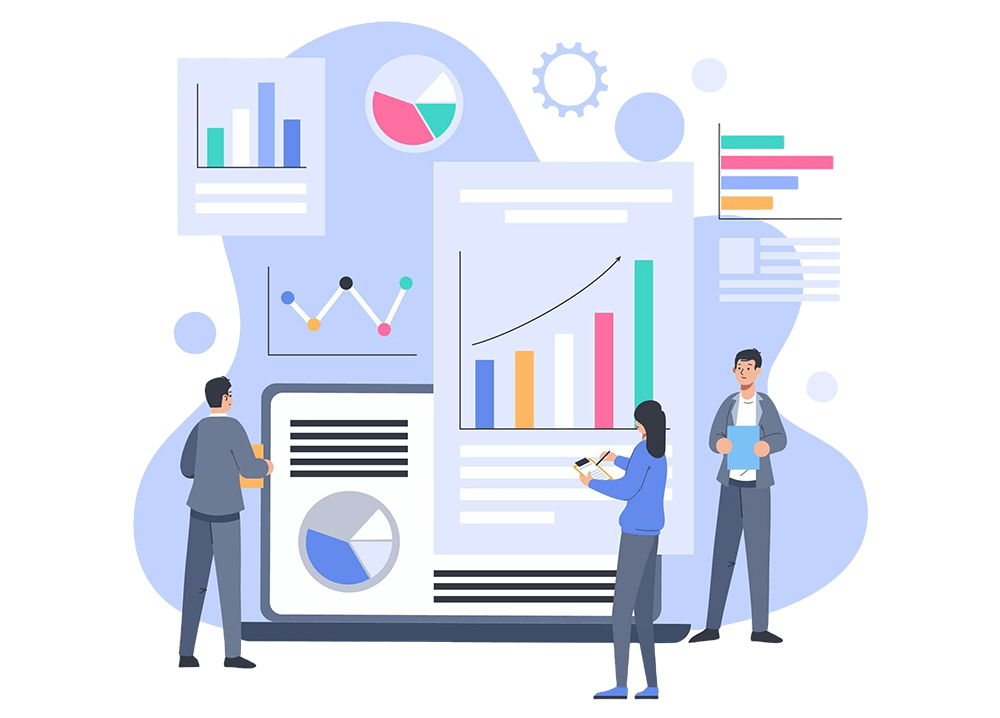
4. What are the risks of using AI?
AI FAQs sometimes skip over the messy parts, but they’re just as important to understand. Like any tool, AI isn’t perfect. It works fast and can feel smart, but it still makes mistakes.
One common problem is something called a hallucination. This means the AI gives an answer that sounds right but isn’t based on real facts. It’s like asking someone for directions and getting confident instructions to a place that doesn’t exist.
Bias is another issue. AI tools learn from data, and that data often reflects human opinions or errors. If the training data has gaps or slants, the AI might repeat those same patterns in its answers.
AI can also misread tone or miss context. A tool might flag a helpful review as negative or suggest a product that makes no sense for your audience.
Data science powers AI systems. However, if the data they learn from has gaps or bias, the AI might repeat those same issues.
For these reasons, it’s smart to double-check what AI creates. AI is always getting better, but since it’s not perfect yet, it’s wise to treat its work like a draft. A human should still make the final call.
5. Do I need special tools or skills to use AI?
AI FAQs often make it sound like you need to be a coder or a data science expert to use AI. But that’s not true for most ecommerce store owners today.
Many AI tools are made for regular people. They come with simple menus, built-in tips, and work straight out of the box. You don’t have to learn how they were made. You just need to know what you want them to do.
Some WooCommerce plugins already let you use AI without building anything from scratch. For example, StoreAgent offers versatile yet user-friendly tools that write product descriptions or summarize customer reviews. It can also help you build a knowledge base by turning repeat customer questions into searchable answers.
Furthermore, StoreAgent can support your digital marketing by improving SEO, making your pages easier to find on search engines.
The more you explore AI, the more helpful it gets. Over time, you’ll figure out which tools save the most time, bring in better results, or help you understand your customers better.
6. Is it safe to use AI with customer data?
AI FAQs often bring up one big concern: privacy. It’s a fair question, especially when your store collects personal details from customers.
AI tools usually need data to work well. But not all data should be shared without thought. Things like names, emails, and buying habits are sensitive. They need to be handled with care.
Some tools keep everything on your own system. Others send data to outside servers. It’s important to know how the tool works before using it.
If a tool collects or stores personal information, you may need to ask for your customer’s consent. This depends on your location and theirs. For example, stores selling to EU customers need to follow rules under GDPR.
The safest approach is to read the privacy policy of each AI tool. Look for where data is stored, who can access it, and how long it’s kept. It’s also a good idea to avoid sharing anything you wouldn’t want made public.
AI is helpful, but it should never put your customers’ trust at risk. Think of it like locking the doors of your shop at night. You don’t stop running your business—you just take extra care.
7. How much does AI cost?
AI FAQs often touch on price, and it’s not always a simple answer. Some tools are free, while others charge based on how much you use them.
The free tools can do a lot. But they may have limits, like slower responses or fewer features. Many store owners start here to try things out.
Paid versions usually give more power, better speed, or access to the latest models. Some charge a flat fee. Others use something called “tokens.”
A token is like a small piece of text. Longer questions or answers use more tokens. It’s a bit like buying snacks by the piece instead of the bag.
If you use a tool often, the cost can add up. Store owners using AI daily—like for product writing or customer replies—may need to plan a budget for it.
Some WooCommerce tools bundle AI into their monthly plans. Others let you pick how much to spend. Either way, it’s good to know how pricing works before relying on it too much.
The good news is that many AI tools scale. You can start small, then grow as your store grows.
8. How do I know if a tool I’m using has AI in it?
AI FAQs often forget to mention that AI doesn’t always look like a robot. In fact, most tools that use it don’t say “AI” right on the label.
Instead, it works quietly in the background. If your plugin sorts products automatically, predicts what customers might like, or helps you respond to chats, there’s a good chance AI is involved.
Look for signs like smart search, product recommendations, or writing help. These features often run on AI, even if it’s not clearly stated.
But here’s the catch. Some tools claim to use AI when they really don’t. This is called “AI-washing.” It’s like putting a fancy label on something ordinary.
To avoid that, check what the tool actually does. Does it learn from data? Does it adjust to different users? If not, it might just be using fixed rules.
It helps to read the feature list carefully. If a plugin promises smart automation or learning, ask how it works. Some makers are upfront. Others just use buzzwords.
When shopping for WooCommerce tools, go beyond the marketing. Ask for demos. Look for trusted sources. Test things out.
AI doesn’t have to be loud to be useful. But knowing what’s real and what’s just hype can save you time and money.
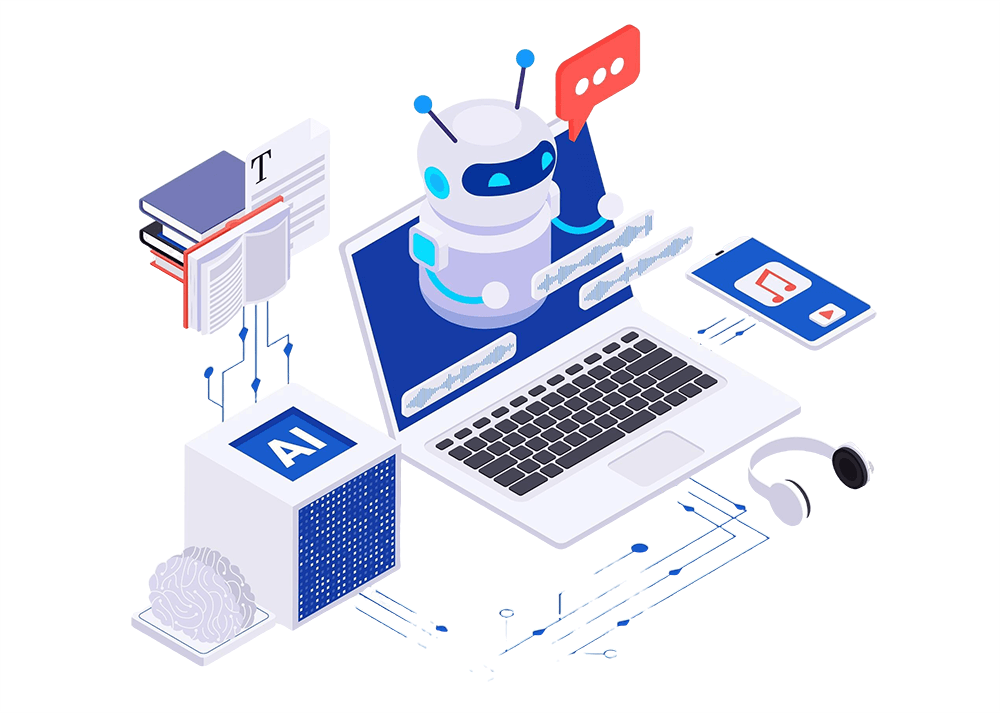
9. Will AI replace people in my business?
AI FAQs often bring up this fear. Will machines take over all the jobs?
Not likely. AI isn’t here to be the boss. It works best as an assistant that follows instructions and helps out where needed.
Think of it like a calculator. It can solve math problems fast, but it doesn’t run your store. You still make the decisions.
In ecommerce, AI can take care of the busywork. It can tag products, write short descriptions, or answer basic questions. That means people can focus on planning, designing, and building customer relationships.
The goal isn’t to replace anyone. It’s to give store owners more time and breathing room.
Even the smartest AI doesn’t have common sense. It won’t know your brand’s tone or understand your customers the way you do.
So instead of worrying, think of AI as a helpful tool: one that works quickly, never gets tired, and frees up space for real human creativity.
10. What’s the future of AI in ecommerce?
AI FAQs often touch on what’s coming next, and ecommerce is one place where change is already underway. Tools are getting smarter, faster, and easier to use. But instead of thinking about flying robots or talking cash registers, picture small upgrades that make everyday tasks smoother.
One trend is real-time translation. Stores can already talk to customers in different languages without hiring a full team of translators. That makes it easier to sell to buyers from around the world.
Another is image search. Some tools let shoppers upload a photo and get matched products. It’s like giving your store a visual memory that helps customers find what they want faster.
AI is also getting better at spotting patterns. This could mean noticing when a product’s about to become popular or when something’s not selling well anymore. These kinds of hints help store owners act before problems grow.
The goal isn’t to make stores run on autopilot. It’s to support people behind the scenes. Think of it like switching from hand tools to power tools. The work is still yours, but the process gets a whole lot easier.
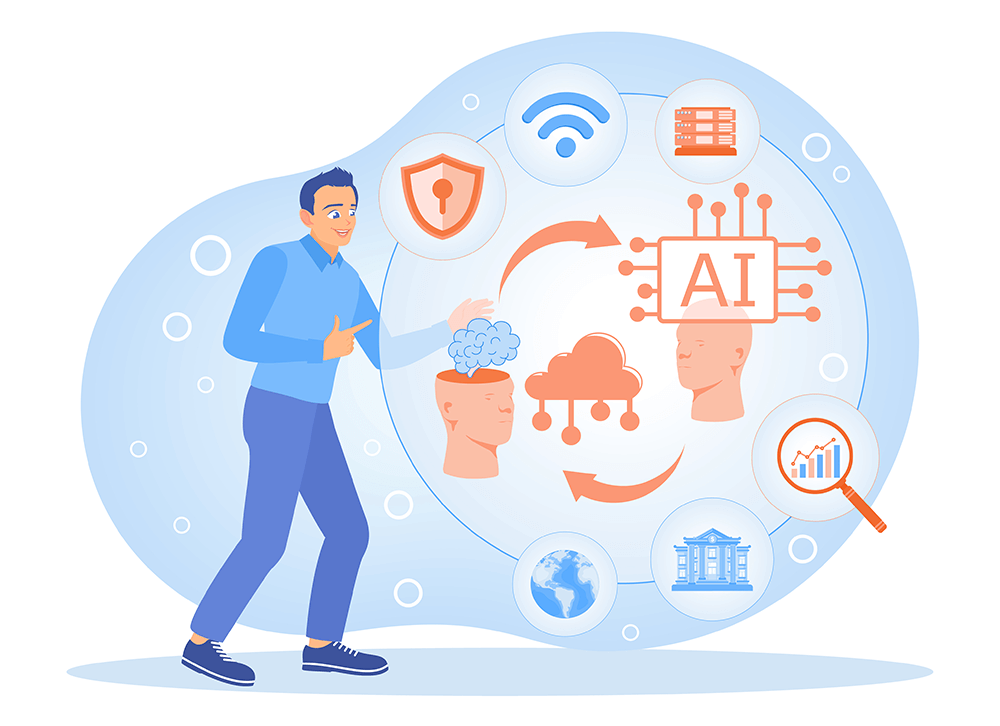
Conclusion
AI isn’t just for tech experts anymore. It’s for store owners, too, especially those who want to save time, improve their shop, and keep up with what’s next.
We’ve seen that AI can write product descriptions, predict sales trends, boost digital marketing, chat with customers, and more. While it’s not perfect, it’s already helping thousands of ecommerce shops work faster and smarter.
As the tools improve, so do the ways we can use them. The key is to treat AI like a partner, not a replacement. Learn what it can do, double-check its work, and use it to support the parts of your store that matter most.
Whether you’re new to AI or already using it, there’s always more to explore. And that’s what makes it worth paying attention to.
To recap, this article answered the following AI FAQs:
- What is AI, really?
- Is AI the same as machine learning or deep learning?
- Can AI actually help my store?
- What are the risks of using AI?
- Do I need special tools or skills to use AI?
- Is it safe to use AI with customer data?
- How much does AI cost?
- How do I know if a tool I’m using has AI in it?
- Will AI replace people in my business?
- What’s the future of AI in ecommerce?
Thinking of using AI for daily store tasks? See what StoreAgent can do to speed up writing, answer questions, and improve how your product pages perform.
